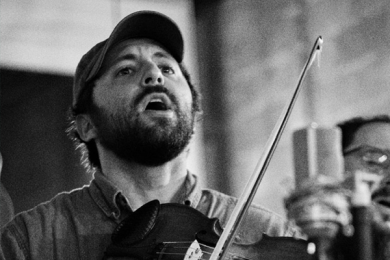Raging Twin Cities theater debates, New Plays & improvisation
News
There’s quite the conversation happening amongst Twin Cities theater artists in reaction to a piece written by Cory Hinkle for HowlRound.
How Are Theater Artists Living in the Livable Twin Cities?
What Cory has to say is too sprawling for me to try and boil it down to a sentence or two. And it is clearly filled with hot button issues judging from the comments both on howlround and in various threads on facebook where the article has been linked. I encourage everyone to read Cory’s article but also spend the time to read the comments to his article.
Because I know many of you will say you’re going to read it and read the comments but you’ll somehow forget and because you may not know how to find comments in response that ended up in various social media places I’ll highlight a bunch of comments below.
Ben McGinley “The Red Eye came to my mind while reading that as well. Glad the acknowledgement's been made! "It is very difficult to stay local and create local and be a 'Minnesota artist and only do a single thing." This is so true, and I think it's fantastic. It's not only in the theater world, but everywhere. The economy and its 'no jobs' have forced lots of us to get create and to employ the multiplicity of skillsets that we have into, like you said, creative hybrids. I think more and more theater artists are/have begun catching on to this. And I think it's a very positive thing! It has certainly been the case with a lot of web developers, designers, and video production pros that I work with. It's inspiring to see folks put the pieces together to make it work, and to make it "livable." There are many challenges, like being grant-dependent, that make it difficult to have a sustainable or livable career here. There are challenges, but that doesn't mean that it isn't impossible. Anyway, thanks for all the thoughts, it's nice to hear this conversation outside my head sometimes. And well argued and articulated!”
Ben Thietje “Most of the things you list as drawbacks to producing at the MN Fringe are the main reasons I think the Fringe is so popular: short tech, simplified sets/design, low production value. Even if you paid all your artists in modest stipends, producing a fully-realized show the way you're talking would cost at least three times as much as something that was done at the Fringe. Unfortunately, most artists (in any city) don't have that kind of money to throw at a new play that may or may not break even.”
Zach Curtis “I'm a freelance director in the Twin Cities, and I also am an Equity actor (one of those "hybrid" performers you speak of, which I guess I will remain being as long as people keep hiring me for both.) I am directing six different shows for five companies this year. No, none of them are world premieres. Why? Because that's not what I was hired to do. The companies I work for all do new shows at times, but I am not the person brought on for those productions. Yes, a freelance director can bring new shows to an artistic director. But that's not how every theater works. In many cases, the artistic director seeks out talent to direct shows that have already been chosen. I take umbrage at your insinuation that not only are there not enough directors, but that some how the ones who are working are partially to blame for not introducing more new work. Just like you, sir - I'm trying to get myself work, first and foremost.”
Kathy Welch "Since this has been posted I’ve heard all sorts of great forward-thinking ideas: a new play library to expose interested theaters to new local writers, a director/playwright forum, new ways the PWC can engage with the community." Yes please! Who can step up to the plate for something like this? PWC? MN Theater Alliance? Guthrie?”
Elissa Adams “Good morning, Amazing Twin Cities Artists! I'm here in my office at Children's Theatre Company, and I am simultaneously a.) following this lively discussion on HowlRound b.) reading the most recent draft of Buccaneers!--a new musical we commissioned from playwright Liz Duffy Adams and composer Ellen Maddow that will open the season next year at CTC, c.) checking in on the rehearsals for Cheryl West's new play, Lizzie Bright and the Buckminster Boy (also a CTC commission) that is happening in the room just outside my office and d.) planning my next few weeks of Twin Cities theatre-going, which, as always, revolve around an attempt to keep up with all of the new work being done in town. As a lover and supporter of new work, this means it's a very good morning. As a contributor to the discussion about the Twin Cities as an eco-system for new plays, what does my morning signify? …” go read the full comment. It’s long.
Michael Paul Levin “ I'm sorry, but whenever I hear a playwright complain "There aren't enough theaters doing NEW plays," it usually means "There aren't enough theaters doing MY plays."
Cory Hinkle “Glad I could get this conversation going. I'm also happy that people have thrown in so many other theatre companies that do new work and new plays - that wasn't really the ultimate point of the article though ... Rhianna is a great example of a person who started their own company because there was no place for her work - that was exactly my point. Rhianna's work will not and has not been done at Jungle, Gremlin, Guthrie, etc. etc, etc. The bigger point of the article was that we don't have bigger institutions to support writers like Rhianna. Sure, there are many smaller companies doing new work/new plays started by many of us who wanted to make it happen - most of them don't exclusively do new work/new plays, but they often do. I think my target in the article was larger institutions/the funding sources and the much broader community. why would I want to tear down the small theater company? wasn't my point. i want to encourage MORE small theatre companies that do new work/new plays, in hopes that some of them will some day become larger, Jungle/Guthrie like institutions.”
___
Several commenters from other cities pointed out that issues raised by Cory aren’t unique to the Twin Cities.
Gwydion Suilebhan “(@GwydionS) You could have written a similar version of this blog post about DC... and, in fact, I did just that this very morning: http://www.suilebhan.com/2012/02/13/the-state-of-new-play-in-dc/ (first in a series...) I think some of the issues you've raised here are endemic to the national theatrical ecosystem. We have forgotten that the true measure of vitality in our culture is the quantity and quality of new work we create, both locally and nationally. Time for that to change.”
Meghan Arnette “I feel like a lot of what is described as the problems don't sound much different than Seattle. From up here I've had the impression of a thriving scene. Am I just suffering from grass is greener?”
Kittson O’Neill “Cory, Thank you so much for this. I have long been an admirer of the Twin Cities and their vibrant theater scene, so it was a real eye opener for me to hear you articulate the same issues facing new work there that I feel we have here in Philadelphia. We are also blessed by generous institutions and smart audiences, but there is very little opportunity for homegrown directors and very little stage space given to totally new work. I think a possible solution would be for institutional giving to get more flexible. Many theaters don't hire outside directors as a budget savings. Why not encourage them to use new brains on their stages by, say, covering the directors fee? I see that DC has a similar problem. Perhaps we are uncovering a nationwide issue here. Any other cities out there feeling the same way?”
___
Responses to Cory’s article on Twin Cities Playwright John Heimbuch’s facebook wall spilled over into an entirely different conversation about the Playwrights Center and the growing and nurturing of writing talent in the Twin Cities. Below is the bulk of that discussion as it’s informative and likely overlooked because it happened in facebook comments.
Cory Hinkle “Thanks for your responses, John! I just posted a response on the howlround blog ... I think it's a good conversation to keep going, regardless of the disagreements and others like Tory Stewart and Joe Waechter and Sha Cage are responding to my post this week - hopefully, we can capture the many different viewpoints here? And, yes, the scene is thriving, doesn't mean I don't have a critique of the way in which it is thriving and that there isn't room for change.”
John Heimbuch “Thanks Cory. And even though I disagree with some of your points doesn't mean that I reject the hypothesis or the goal - I strongly support getting more new works staged in the Twin Cities and liveable incomes for artists.”
Tory Stewart “John, I guess it comes down to the question of what is a "local writer"? I agree that the PWC could always do more within the scene (as any institution could do) but Cory and I have been here for almost a decade and I feel very engaged with the scene here (and enthusiastic about it as well!) And having an outsider's perspective is not always a bad thing...”
John Heimbuch “I think a decade qualifies you as local, and you're certainly working actively in the scene - being connected to a local company and staging a show at one of the Twin Cities larger theatres. I agree that an outsider's perspective isn't a bad thing, but new writers coming in on the Jerome have challenges forming new connections.
More to my point: The Playwrights Center is not focused on helping local individuals find their voices as writers. It IS focused on finding already-developed voices from wherever they might be and bringing them here for a year (or more) to utilize the center's resources. It's a fine goal, no question. I'm not complaining about that. But as someone who grew up near the Center it sometimes feels frustrating (and a little invalidating) to not have any way to meaningfully connect to it, despite the rhetoric the Center sometimes employs about supporting local artists. I try to just keep applying for the programs with the assumption that when the right play crosses their desk it'll happen - but after a decade of applying, it's hard not to feel a little bitter.”
John Heimbuch “Though I'll be the first to admit that my plays prior to 2007 were not going to be contenders.”
Jeremy Cohen “I absolutely hear your concerns, John; it’s an oft-challenging and sometimes painful career, that of being a playwright, because one is constantly “submitting” (that horrible word we ban at the Center) your work into a process where other people accept/reject you…constantly in a cycle of looking for validation through Fellowship, Production, etc. And, as you say, you’ve done great work in pulling yourself out of that cycle by producing the inventive & risky & provocative work that Walking Shadow is making! I, personally, remain an ardent fan of your writing. I would also agree that the path for playwrights moving move here on Jerome Fellowships can occasionally be a tricky one, as they do have a longer road towards connecting with the incredible theatre companies on the local scene. At the Center, we talk quite transparently with Fellows that move here about our desire to see them integrate themselves into the community (not to wait for theatre companies to come to them) and have sought countless opportunities to help build those bridges.
That said, we are the SOLE new play development center in the US that boasts the annual support of: 14 paid Fellowships ($200K to theatre artists), 29 Core Writer positions (a 3-year commitment of writing/career support), 7 Core Apprenticeships (local/national universities) and over 1100 local, national & international playwright Members that we serve daily through opportunities, monthly Member Readings at the Center, etc...and no ticket cost to any of the myriad public events here. To that end, I can certainly speak to the integrity of the Center’s focus and intention as we address the needs of a wide swath of playwrights. We pride ourselves on our commitment to local playwrights, not (as you mention) as “rhetoric we sometimes employ about supporting local artists”…but because we actually spend our days working towards that very support.
If you are dissatisfied with the results of our efforts, then by all means – we’re always open to hearing other ideas on how to support playwrights differently. If your intention is actually to affect dialogue or spark change…my door is open, as you well know. But, disseminating false information just chums the water to create a divide in the community, and to speak about the efforts and work of the Center in a presumptuous and wholly reductive manner feels quite reckless & caustic.
To clarify a few FALSE notions: as we state explicitly on ALL of our materials, the Playwrights’ Center does not select the recipients of the Fellowships. There is neither a Fellowship Staff nor a sole voice working at the Center who chooses the recipients. There has never been and there will never be. As all of our materials state: “Applicants are screened for eligibility by the Playwrights' Center and evaluated by a select panel of professional theater artists...the Playwrights' Center does not participate in selection decisions.” So please know that there is not a desk to be found here at the Center that has the power to select a playwright for one of the Fellowships…even “when the right script comes along”. It would of course be easier to blame us if we selected the Fellows…but it just isn’t true.You then write: “The Playwrights Center is not focused on helping local individuals find their voices as writers. It IS focused on finding already-developed voices from wherever they might be and bringing them here for a year (or more) to utilize the center's resources.” The assumptions you make about our “goals” and the definitions you completely have devised are…well, just that. Assumptive and Devised.
Over the past 2 seasons alone, 26 of the 28 paid Fellowships at the Center have been available for Minnesota theatre artists…and of the 26 slots, 20 were given to Minnesota theatremakers (as selected by different local/national panels) -- resulting in over $300,000 (of the possible $400,000) going directly into the pockets of Minnesota artists. And of the current 29 Core Writers, 15 of them are Minnesota playwrights.
John -- I understand your frustration and I know there is deep history here in the Twin Cities for some writers about their relationship to the Center as different dynamics with this incredible community have shifted over the years. And I’m someone who prides himself on being deeply interested in the kind of challenge & obstacle that you bring up in your comments here (and on HowlRound) -- sitting quietly on one’s hands never really moves things forward, agreed. Again, why I think the work you and Amy are doing at Walking Shadow is so great! And while constructive disagreement and conversation can go an epic way towards moving the local and national field discussions forward, emotionally-charged opinions being stated as truths only take us backwards.”
John Heimbuch “Hey Jeremy. Thanks for that long and carefully articulated response. It is certainly more than I deserve.
I recognize, when reading through my prior statements to Meghan that I have miss-stated a lot of what the Center does, both for local writers and on the national scene. I certainly recognize the very significant position it occupies in American Theatre as the only organization of its kind promoting and supporting such an enormous number of playwrights with financial support and staff. Being from the Twin Cities, it is quite easy to take that for granted.
Some of what I said was sloppily put. Of course I know that the Center itself doesn't make decisions about the applicants, and that the decision-making panels are very thorough and rigorous in assessment of the plays they receive. What I meant about "when the right play goes across the desk" was that I am content to be considered as any other applicant, and want no special favors whatever my zip code. The quality of the work absolutely should be the primary determining factor, and I have no gripes with how that process is done.
And I certainly know that many of the playwrights who come here on the Jerome Fellowship settle down in the Twin Cities, and it's not fair to say they aren't local. I owe an apology to Cory and Tory on that account. But I also recognize the difficulty that writers who only come for their fellowship year face in building MN connections. And many opt not to try because they know they won't be here for any significant length of time - and they have stronger, more meaningful connections in other communities. Personally, I find this a little sad as I like getting to know other theatre artists - regardless of where they choose to make their long-term home.
As a Minnesota born, raised, educated, and now working theatre artist, I sometimes feel like I lack the visible cachet that other playwrights who come on the Jerome Fellowship have. This is probably more indicative of my own insecurities than anything else. The Center draws serious applicants from all over the country, and given the quality of its support there's no wonder that the writers it attracts are of the top caliber. This in turn urges me toward greater rigor as a writer. In general, that's good.
The challenge I've felt as a Minnesota writer is a distinct lack of guidance in my career. Despite an abundance of colleges, Minnesota offers no Bachelor or Master degrees in playwriting. Nor were there any good ground-level resources for me as a fledgling writer. This occasional leaves me floundering for ways to form connections to other writers and directors around the country. I owe most of my meaningful national connections to the Lincoln Center Directors Lab.
Sometimes I wonder if there would be room in the Twin Cities for a smaller playwright service organization (such as PlayPenn, Chicago Dramatists, or Rain City Projects) that focuses exclusively on providing broadly accessible resources to all playwrights within this area - more small readings, promotion, and competition, with a focus on helping local writers connect to local and national theatres - and helping to develop the voice of the community. I know I certainly would have latched onto such an organization if it had been available to me when I began writing. At that time the Center had just transitioned away from programs like the Roundtable readings, PlayLabs, and more a locally-driven membership. I believe this is still keenly felt by many writers in the Twin Cities.
Jeremy, again - thanks for the thoughtful response. I apologize for any offense I may have caused, and as Cory suggested in the HowlRound article, perhaps an open dialogue within the community would be a good idea.”
The most compelling take away for me both from reading Cory’s article several times and following the responses all over the internet and in a few actual real life conversations is that pretty much every artist seems to think what they are doing is truly unique and that they are, more than most, underappreciated or under-recognized for their work. Is there any chance that as many artists who think they are doing unique work and being underappreciated really are? Or are we artists guilty of toiling away in our silos not noticing the people doing work similar to ours and thus not appreciating what countless other artists are already offering?
___
Speaking of artists wanting to be considered unique the McKnight blog State of the Artist posted a piece by Springboard for the Arts’ Executive Director Laura Zabel on the importance of being ordinary.
The main thrust of the piece is that work by artists can be important without them having to be considered special and by classifying artists’ work as special the work becomes separate from the greater community. Which then makes it harder to show the value of the arts to the greater community. “By trying to prove how rare, how talented, how special; we end up reinforcing a stereotype that there is a chasm between “real people” and “artists.”
It’s a very interesting and compelling essay and I encourage you to give it a read.
The Importance of being Ordinary
Looking at the comment thread there were a lot of strong reactions, both positive and negative, to what Laura had to say. Clearly a lot of folks see the word special as a positive and ordinary as a negative. Perhaps more significantly, it appears important to a lot of people who are artists or heavily involved in the arts that artist be considered separate from the greater community in some way. I encourage you to scroll down and read through the comments on the piece.
Do you think artists are inherently special? What’s the value in considering artists as something other than most people?
___
Cory Hinkle’s article in HowlRound focused a lot on a lack of new plays being produced in the Twin Cities. I think that’s a misunderstanding of what is actually a fairly robust new work community. There may be room for more playwrights to get their work produced by local companies but there are plenty of writers in Minnesota who find ways to get their work produced and put up on stage in front of an audience. In an effort to highlight the volume of new plays and new works being made in Minnesota I’m going to try and highlight at least one new show each week in these round ups.
This week I want to highlight a show called JENGA! written by Josh Carson.
Conceived of by Josh Carson and Andy Kraft, written and directed by Carson, JENGA! is a parody and deconstruction of Hollywood, big-budget disaster movies. As a playwright who has been active in the Twin Cities for the last decade, the bulk of Carson’s work has been self-produced or done in collaboration with other artists and a small theater company or two. The kind of work Carson does is representative of a lot of playwrights in the Twin Cities who aren’t necessarily writing plays for a company to produce or being commissioned to write but have ideas for the stage that audiences would enjoy and find ways to make their work come to life.
JENGA! is currently being performed at the Brave New Workshop Student Unionon 2605 Hennepin avenue in Minneapolis. There are still five performances left all at 8pm on:
February 23rd
February 24th
February 25th
March 2nd
March 3rd
___
In a meeting over the weekend I told Alan Berks that I saw JENGA! He asked me about the show and I said he probably wouldn’t like it but it was really fun. After acknowledging that I had just insulted Alan much more than I meant to I told him more about the play and he ultimately said it sounded like something he would like to see and would probably enjoy. I mention this conversation because it was a good reminder to me that even as a playwright myself I categorize the writers I know and the theater companies I know into specific groups, making assumptions about the kind of work they do and the kind of work they enjoy but these categorizations are almost never accurate. I don’t often think of artists like Josh Carson as creators of New Plays but rather just artist who put up fun shows. And when I think that way I’m wrong.
___
The folks at HUGE theaterin Minneapolis polled directors of improv theater for what they pay attention to when holding improv theater auditions. There were a lot of interesting responses demonstrating how unique a subgenre of theater improv can be. But a great many of the things listed would also apply to most audition scenarios.
What Directors want you to know about auditioning for Improv.
If you’ve auditioned for both improv shows and written plays how would you compare the experiences?
___
In case you missed it our editor in chief, Alan Berks, wrote an article on how money affects the theater community. Spoiler alert: It has a huge impact.
Amateurs, academics, and money
___
Last Monday was the Fringe Festival lottery drawing. You can go see the list of shows that are in as well as the shows on the wait list. It’s not too soon to offer your services to the artists who will be producing shows this year. A great many probably won’t even start writing until they panic in June so get your foot in the door early and check out the lists.
2012 Minnesota Fringe Festival lottery results.
___
Local writer, actor, and educator Dylan Fresco wrote a commentary piece for Minnesota Public Radio about the importance of sending money overseas for immigrant communities. It’s worth a read.
An earlier generation understood all too well the need to send money overseas
___
There’s a lot of other great stuff going on in the Minnesota performing arts community. If you know about great stuff drop us a line so we can know about it too.
Hope you have a week filled with substantive discussion
-Levi




